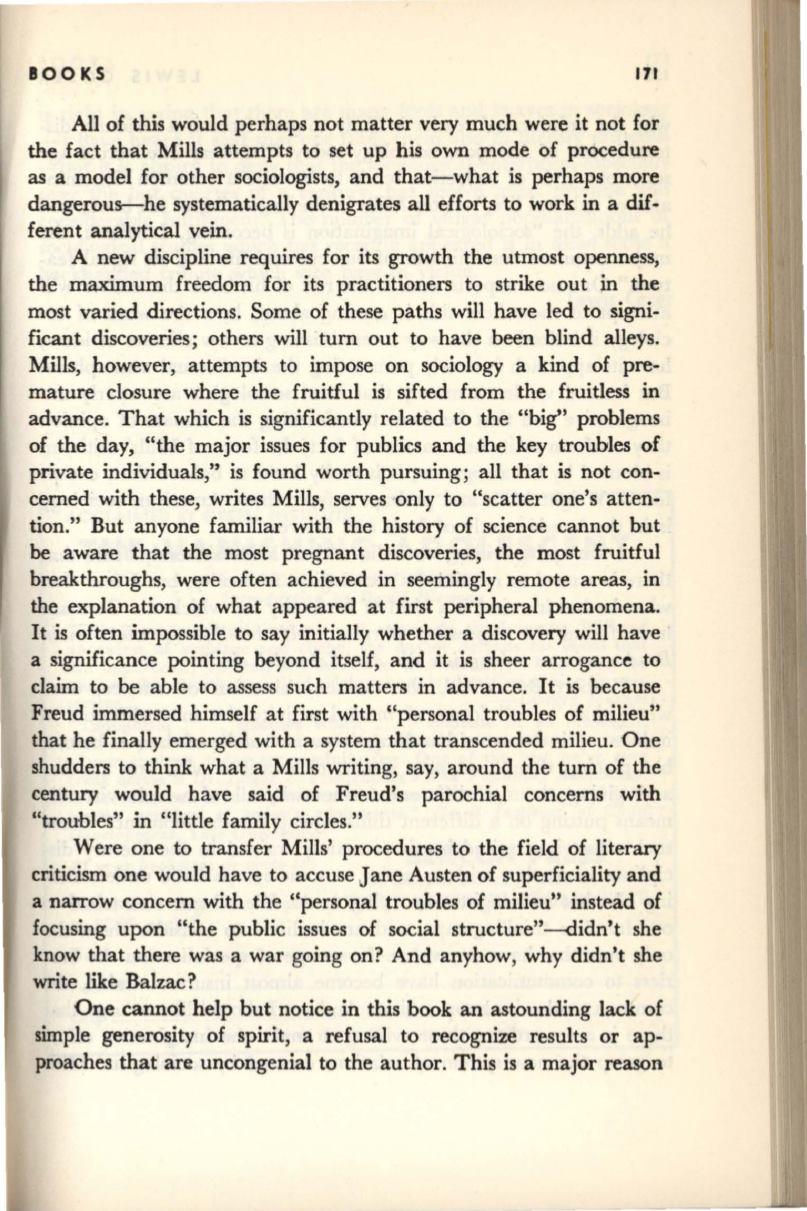
lOOKS
171
All of this would perhaps not matter very much were it not for
the fact that Mills attempts to set up his own mode of procedure
as a model for other sociologists, and that-what is perhaps more
dangerous-he systematically denigrates all efforts to work in a dif–
ferent analytical vein.
A new discipline requires for its
growth
the utmost openness,
the maximum freedom for its practitioners to strike out in the
most varied directions. Some of these paths will have led to signi–
ficant discoveries; others will turn out to have been blind alleys.
Mills, however, attempts to impose on sociology a kind of pre–
mature closure where the fruitful is sifted from the fruitless in
advance. That which is significantly related to the "big" problems
of the day, "the major issues for publics and the key troubles of
private individuals," is found worth pursuing; all that is not con–
cerned with these, writes Mills, serves only to "scatter one's atten–
tion." But anyone familiar with the history of science cannot but
be
aware that the most pregnant discoveries, the most fruitful
breakthroughs, were often achieved in seemingly remote areas, in
the explanation of what appeared at first peripheral phenomena.
It is often impossible to say initially whether a discovery will have
a significance pointing beyond itself, and it is sheer arrogance to
claim to be able to assess such matters in advance. It is because
Freud immersed himself at first with "personal troubles of milieu"
that he finally emerged with a system that transcended milieu. One
shudders to think what a Mills writing, say, around the turn of the
century would have said of Freud's parochial concerns with
"troubles" in "little family circles."
Were one to transfer Mills' procedures to the field of literary
criticism one would have to accuse Jane Austen of superficiality and
a narrow concern with the "personal troubles of milieu" instead of
focusing upon "the public issues of social structure"-<lidn't she
know that there was a war going on? And anyhow, why didn't she
write like Balzac?
One cannot help but notice in this book an astounding lack of
simple generosity of spirit, a refusal to recognize results or ap–
proaches that are uncongenial to the author. This is a major reason


